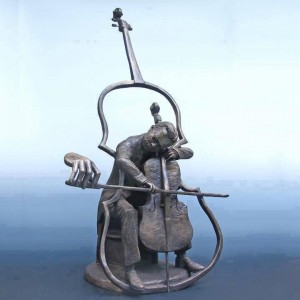What Does Consciousness Have to Do with Fiction?

Well . . . We expect fictional characters to be conscious—meaning to have some level of self-awareness—in order that we can understand, believe in, and perhaps identify with their motives. It’s fair to say that the quality of being conscious is the essential human quality, even though we don’t have a very clear idea what it is. We can say that there is something that it is like to be conscious, as opposed, say, to being unconscious. And there is a continuum—from coma to barely conscious to awake to, ultimately, some ideal state of superconsciousness. But we still have no idea what it is.
I brought a book called The Conscious Mind to a recent mountain retreat and was reading it at bedtime. Early on, it offered this definition:
Consciousness: The having of perceptions, thoughts, and feelings; awareness. The term is impossible to define except in terms that are unintelligible without a grasp of what consciousness means. Many fall into the trap of confusing consciousness with self consciousness—to be conscious it is only necessary to be aware of the external world. Consciousness is a fascinating but elusive phenomenon: it is impossible to specify what it is, what it does, or why it evolved. Nothing worth reading has been written about it.
Got to love that last line. Not so great so far.
As it went on about consciousness and its possible explanation in conjunction with quantum physics, and got even more abstruse as it covered the Wigner’s explanation, the Bohm variation, and the Everett interpretation (whew!), I went cross-eyed and sleepy. At one point, the concept of consciousness as an emergent quality was discussed: a trillion neurons, each potentially connected to ten thousand other neurons, generates a level of complexity out of which something entirely new arises—self-awareness.
The next day, I was sitting in a group listening to a retreat member share. Distracted, I gazed past the tops of the pines at the clear blue sky and my trillion-neuron idea engine generated a vision in which every particle in the universe was like a neuron, somehow connected and firing impulses to countless others, and the entire, massive complexity was generating a single, universal consciousness. It was a fleeting vision, almost feeble in its tenuousness, but still a gift.
5 Comments
Comments are closed

Diving deep dude, cant wait to see where youre going with that next book
Were there really 6 other vronskys ahead of you, or is 7 your lucky number?
Trust Me, coming out in July. No supernatural. A bad guy who likes to blather.
Soul? Cant explIn with neuro…
If there is a soul, Mr. Priddle, it must be a part of a larger “something,” hence my suggestion that the organic complexity giving rise to consciousness is analogous to the larger complexity of “all things” giving rise to a meta-consciousness,, one which would include all smaller ones (hmmm–almost lends itself to a parent/child metaphor, doesn’t it?). I know, there’s still a chicken/egg problem, but in this context that’s a question of time, which, as a human construct, doesn’t apply.
It’s a puzzle that scientists haven’t solved, yet, it continues to tantalize them. One thing I am convinced of–and I am always skeptical–is that consciousness (whatever it is) survives death of the physical body. More and more research supports this concept. I’ve seen plenty of what I consider proof. Keep asking! Keep searching. It’s what we as writers are required to do. And you do it so well.